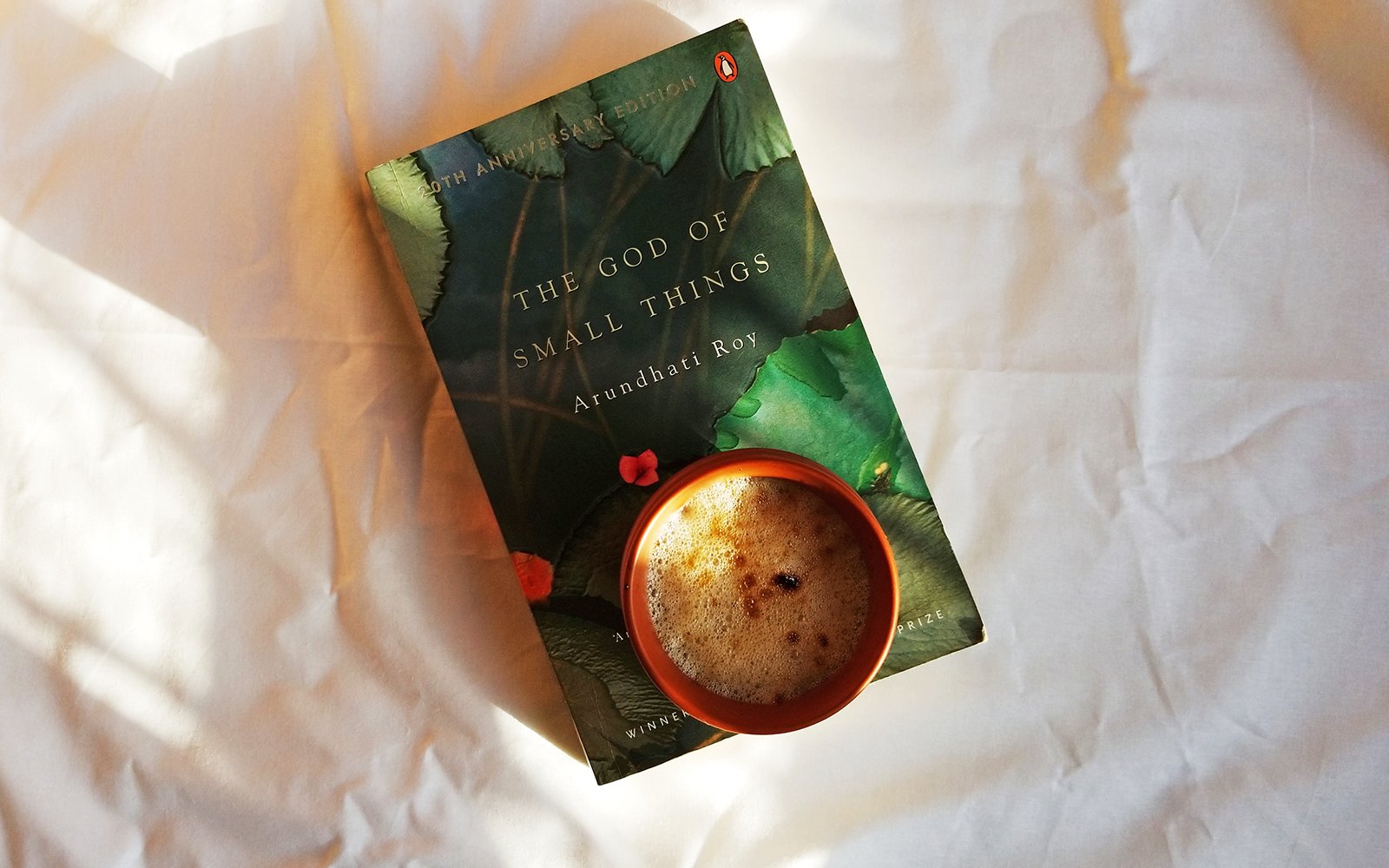A book review by Amina Ashraf
The splendid and stunning novel, “The God of Small Things”, by Arundhati Roy is a reflection of the socio-political hierarchies of society. The story of this novel takes place from 1969 to 1997. It is set in Ayemenem and has three stories related to the generation period. Ammu, the divorced daughter of touchable Pappachi and Mammachi, falls in love with Velutha, the untouchable carpenter who works for Ammu’s family. Ammu breaks the barriers between touchable class and untouchable prevailing in Indian society after falling in love with Velutha. Ammu’s twin children, Rahel and Estha, are like balls in the story with whom everyone plays and hits hard with their emotions, identity, and rights. Similarly, it is a story about the childhood experiences of fraternal twins whose lives are destroyed by the “Love Laws” that lay down: “Who should be loved, and how. And how much.”
On the contrary, Ammu’s brother Chacko also marries of his own choice, and out of caste, with a British woman who he later gets divorced from. Both Ammu and Chacko are portrayed as rebelling against the norms of the traditional castes by taking their own life decisions. However, Chacko’s ex-wife with his daughter Sophie Mol was welcomed in the family home and taken care of by the whole family. The discriminative society did not treat Ammu well after her divorce. This social norm always takes place in Ammu’s life.
Moreover, Ammu’s self-respect gets hit by his father, Pappachi the older generation and he is so fond of English that he would not trust his own daughter when she told him that an Englishman asked her husband to send his wife to him for a night. Pappachi could not believe that any English person could have such low morality.
On the other side, both Rahel and Estha are affected by the lives of Ammu, Chacko, Velutha, Baby Kochamma, and Mammachi. They have to go far away from each other at the age of seven. When the two adolescents meet after decades, they do not find Ammu more. She dies of illness in solitude and Velutha is falsely charged with rape. Rahel also possesses a rebellious nature and married an American.
In this scenario, the novel deals with many socio-political aspects of society regarding the caste system, identity, rights, and injustice. But the beautiful aspect of the novel is that smaller events affect the readers more. In the novel, Velutha was The God of Small Things. Everything that concerns him is small, he makes tiny toys and he is in love with Ammu, whom he calls little. Ammu also dreams of a man with one arm who holds her close to him. He is Velutha. From Ammu’s dream, we get the idea that the God of Small Things represents Velutha, the man whom she loves in spite of the fact that society will never approve of them being together.
“Even later, on the thirteen nights that followed this one, instinctively they stuck to the Small Things. The Big Things ever lurked inside. They knew that there was nowhere for them to go. They had nothing. No future. So they stuck to the small things.” Here, women are shown as the small things that are being ruled by males in Indian society. Somehow, all of the small decisions and events of the novel lead to Estha and Rachel running from home. So the small events are basically the small things.
